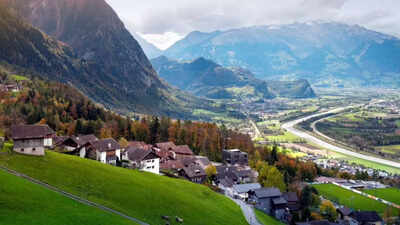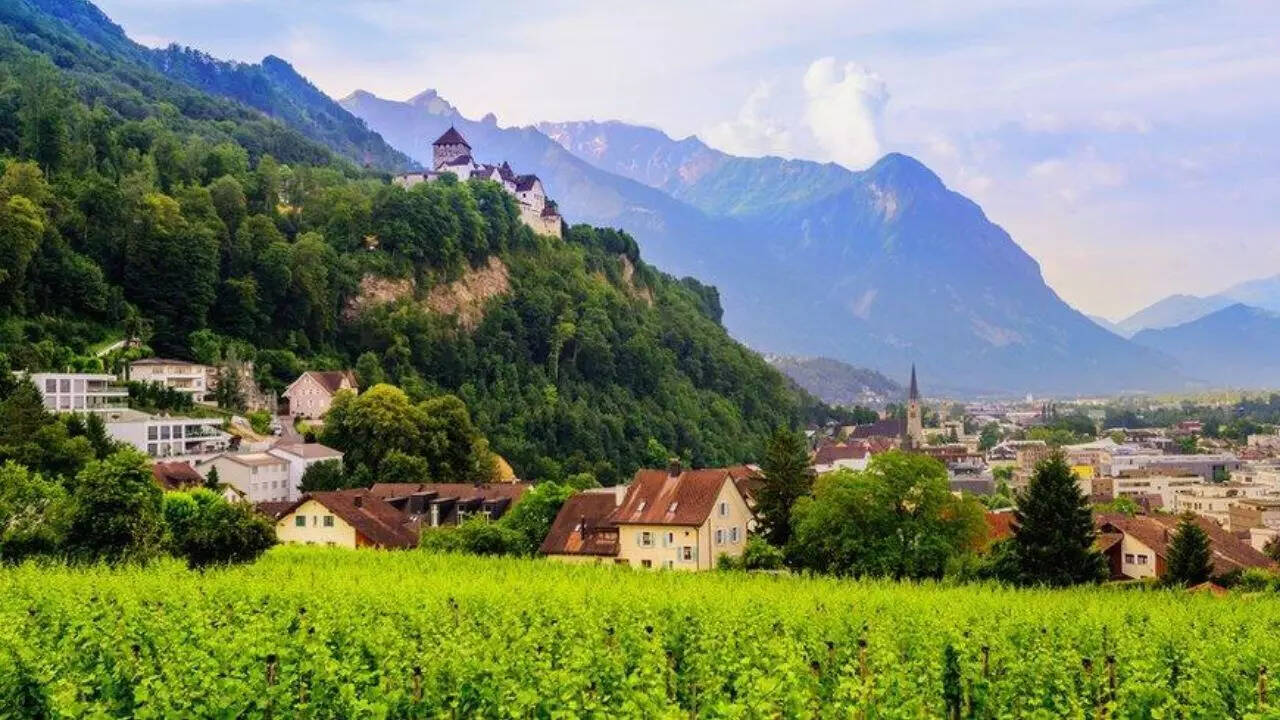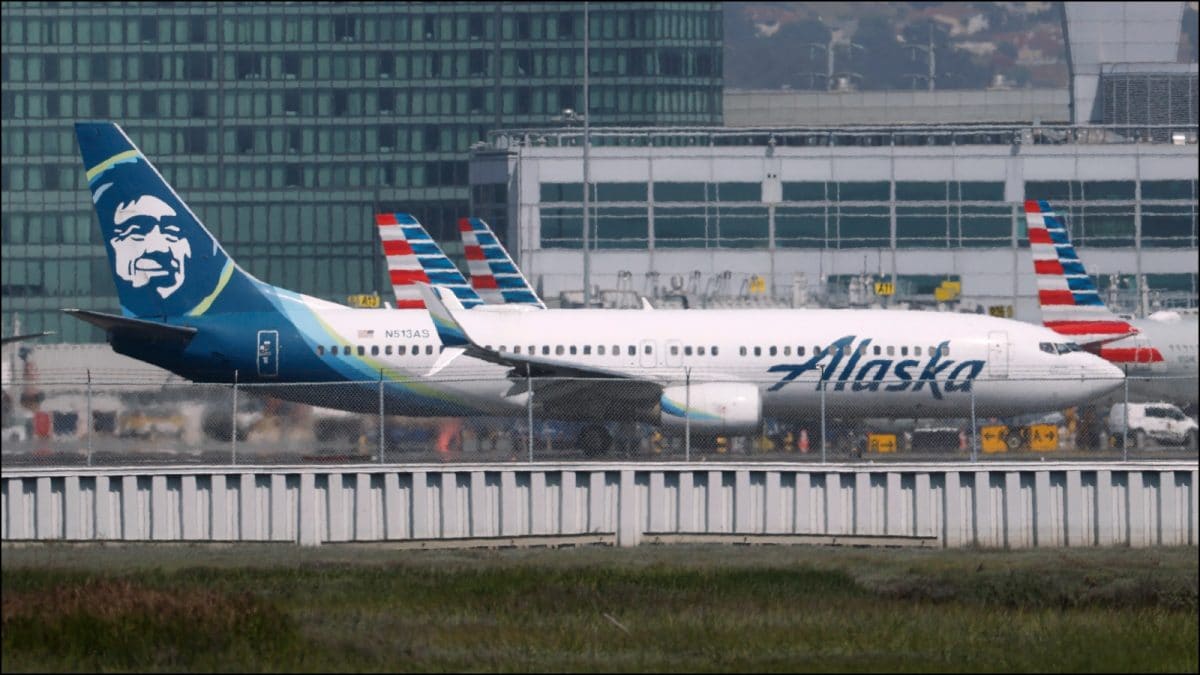ARTICLE AD BOX

Nestled between Switzerland and Austria, Liechtenstein remains one of Europe’s most fascinating hidden gems. Despite its tiny size, this nation functions uniquely without its own airport, independent currency, or even a native official language—German is borrowed, and the Swiss Franc is used.
Yet, Liechtenstein is ranked among the richest and safest countries in the world, boasting fairy-tale castles, pristine alpine landscapes, and a crime rate so low that most residents don’t even lock their doors. Recently, a viral Instagram video showcasing its rare lifestyle and near-utopian living conditions sparked worldwide curiosity. Many were amased at how a country so small and unconventional could thrive economically while offering unparalleled safety, natural beauty, and a high standard of living.
Europe’s wealthiest nations runs without its airport, language and currency
Liechtenstein’s geographic location is stunning, but its infrastructure is unusual. It does not have an international airport, requiring travelers to fly into Switzerland or Austria and drive across the border. The country also does not have its own currency, instead using the Swiss Franc (CHF). Even its official language, German, is borrowed rather than a native tongue. Despite these unique characteristics, Liechtenstein operates efficiently, embracing simplicity while maintaining strong international ties.
Liechtenstein proves that size does not determine success. With its unique governance, strong economy, and harmonious society, it has created an enviable standard of living. For many, it represents a modern utopia where wealth, peace, and natural beauty coexist seamlessly.
Second-wealthiest country in Europe with almost zero crime
Liechtenstein has a population of more than 30,000 people but ranks as the second-wealthiest country in Europe per capita, surpassing even Britain’s royal wealth in GDP terms.
This prosperity stems from low taxation, a strong banking sector, high-tech industries, and zero external debt. Residents enjoy financial security that allows them to focus on hobbies, family, and personal passions rather than working out of necessity.
Cultural norms discourage showing off wealth, favoring a humble and community-driven lifestyle.One of Liechtenstein’s most fascinating aspects is its exceptionally low crime rate.
With only about seven people in prison and around 100 police officers in the entire country, safety is ingrained in everyday life. Many residents do not bother locking their doors at night, reflecting deep social trust and a sense of mutual respect rarely seen in other parts of the world.

Social media calls Liechtenstein a dreamlike European paradise
The viral Instagram video described Liechtenstein as a “hidden gem of Europe” with stunning natural beauty, medieval castles, and snow-capped Alps.
Social media users expressed awe, with comments such as “It looks like a dream” and “This is what life should be everywhere.” Travelers who have visited echoed these sentiments, praising its peaceful environment and breathtaking landscapes.
5 key facts about Liechtenstein
One of only two doubly landlocked countries in the world
Liechtenstein is one of just two nations globally—along with Uzbekistan—that are doubly landlocked, meaning it is surrounded by countries that themselves have no coastline.
Despite this geographical limitation, the country is nestled between Austria and Switzerland in the Alps, making it a popular winter sports destination. Covering an area of 160 square kilometers, roughly the size of Washington D.C., it is the third-largest among Europe’s six smallest states (after Andorra and Malta but larger than Monaco, San Marino, and Vatican City).
Around 40,000 residents call it home, with Schaan being the largest town, even though Vaduz serves as the capital and is better known internationally.
A constitutional monarchy with a small civil service
Liechtenstein is a parliamentary constitutional principality that blends monarchy with democracy. Its 1921 constitution defines the country as “a constitutional, hereditary monarchy on a democratic and parliamentary basis.” The executive branch includes a five-member cabinet nominated by parliament and appointed by the prince for a four-year term. Remarkably, the government employs only 1,500 civil servants—less than 4% of the population, compared to an EU average of around 17%.
The legislative branch consists of 25 parliamentarians, also serving four-year terms.

Second-highest per capita income in Europe
With an average income of US$197,000 per year, Liechtenstein ranks second in Europe for per capita income, just behind Monaco. This wealth stems from heavy investment in research and development (6.2% of GDP) and a strong manufacturing sector, which includes machine and tool engineering, plant construction, and the production of precision and dental instruments.
Manufacturing accounts for 42% of the economy’s value-added output, well above the EU average of 15%.
The financial sector, focused on private banking, wealth management, insurance, and trust services, adds another 20% of GDP.
More jobs than people
A unique feature of Liechtenstein’s economy is its labor force. While the country has about 40,000 residents, it supports 42,500 jobs, thanks to a high number of cross-border commuters from Austria, Switzerland, and Germany.
Nearly 59% of these commuters come from Switzerland and 37% from Austria. Labor participation is high at 76.1% (compared to 74.9% in the EU), and unemployment remains under 2%, reflecting an exceptionally strong job market.
Small but globally connected
Despite its small size, Liechtenstein maintains deep economic integration with global markets. Major export partners include the United States, Germany, and Switzerland. As a member of the European Economic Area (EEA), Liechtenstein has access to the EU single market, including financial services, under free movement rules for services and capital. Its financial institutions, overseen by the European Banking Authority, have expanded wealth management services to Asia and the Middle East.
Close ties with Switzerland—including the use of the Swiss franc—further strengthen its economic and labor market integration.Also Read | Anand Mahindra fell for India’s ‘last village’ in Himachal and you might too after seeing the viral photo



.png)
.png)
.png)
















 6 hours ago
5
6 hours ago
5








 English (US) ·
English (US) ·